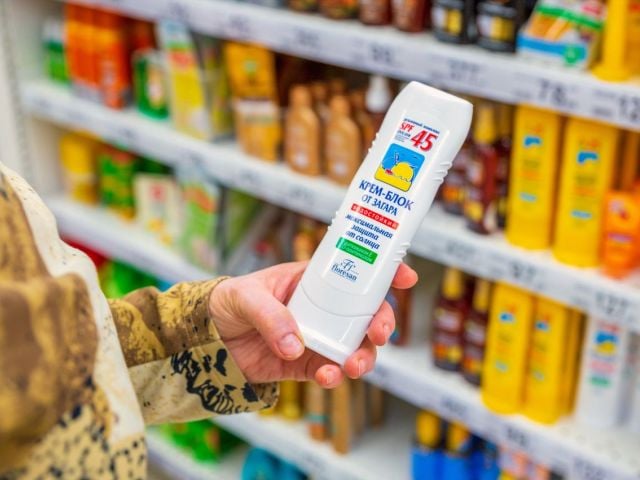WASHINGTON – Rep. Debbie Dingell (D-Mich.) introduced legislation today that would require warning labels on cosmetics that could contain asbestos and are marketed to children. EWG applauded Dingell’s bill, which comes after the Food and Drug Administration reported finding the deadly carcinogen in several talc-based cosmetics products sold by the nationwide retailer Claire’s.
The legislation would require companies to demonstrate that cosmetics marketed to children are free of asbestos. If they could not prove the products were asbestos-free, the items would have to carry a warning. The bill would also update methods to test cosmetics for the presence of asbestos.
“Thousands of products with talc could contain asbestos,” said Scott Faber, EWG’s senior vice president for government affairs. “Because of the leadership of Rep. Dingell, consumers may soon know whether these products, widely used by American kids, are contaminated with a known carcinogen that is responsible for the deaths of hundreds of thousands of Americans.”
“It is hard to believe that decades after the threats of asbestos have been conclusively established, it is still putting people, especially young children, at risk,” said Linda Reinstein, president and CEO of the Asbestos Disease Awareness Organization. “Rep. Dingell’s bill should pass with unanimous support among her colleagues in Congress, and every parent should applaud her efforts to keep kids safe from something as lethal as asbestos.”
Asbestos can contaminate talc-based cosmetics such as facial powders and eye shadow. Geologically, talc and asbestos can be formed from the same parent rock. As a result, talc deposits mined in many parts of the world can be contaminated with asbestos fibers. This is the likely reason why products made with talc could be contaminated with asbestos.
The federal government says there is no safe level of asbestos exposure for any type of asbestos fiber. Even small amounts of asbestos, and exposures as short as a few days, can cause mesothelioma, an incurable cancer, and other diseases many years later. From an analysis of federal mortality data, EWG Action Fund estimated that up to 15,000 Americans die each year from asbestos-triggered diseases.
Under the Dingell bill, companies would be required to use updated testing methods to ensure that cosmetics do not contain asbestos. If companies decline to certify that products are free from asbestos, they would be required to warn consumers that the product has not been tested and is not suitable for use by children.
On Tuesday, the House Oversight and Reform Committee held a hearing into talc-based personal care products that could contain trace levels of asbestos. In testimony before the panel, Faber reported there are more than 2,000 talc-based products in EWG’s online Skin Deep® database, including more than 1,000 loose powders or pressed powders that could pose a risk of being inhaled.
Rep. Jan Schakowsky (D-Ill.) is a co-sponsor of the legislation.
###
The Environmental Working Group is a nonprofit, non-partisan organization that empowers people to live healthier lives in a healthier environment. Through research, advocacy and unique education tools, EWG drives consumer choice and civic action.



